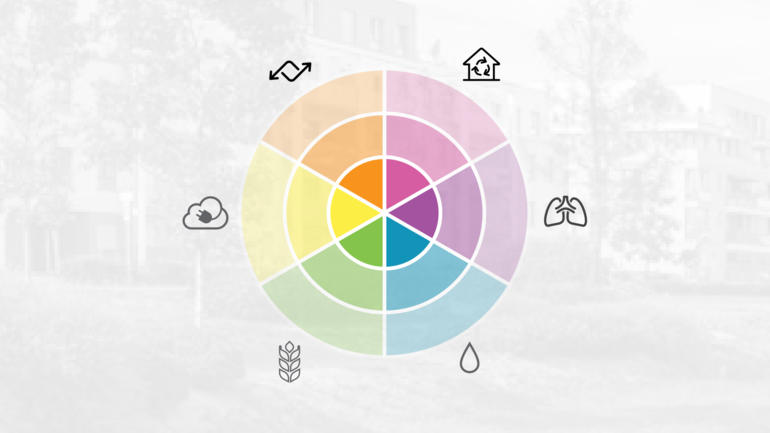Cities are at the forefront of the transition to a sustainable and low-carbon world. In 2050, the urban population is expected to exceed two thirds of a global population of over 9 billion people. Most of the urban population growth between now and then will occur in emerging markets – with roughly the equivalent of the population of Stockholm (1.5m people) moving to cities every week.
WBCSD takes a holistic approach to urban sustainability and works towards a vision of cities to become clean, healthy, prosperous, inclusive, and smart. For this it can leverage the full range of its work program (climate & energy, circular economy, transport, water, food and land use, social impact and sustainable lifestyles).
City leaders around the world are stepping up to tackle climate change, pollution, mobility and inequality while providing economic growth to their citizens. But they cannot act alone – instead they look to the private sector to help develop and implement sustainable solutions at scale. Achieving the Sustainable Development Goals in the urban environment, would present a US$ 3.7tn business opportunity (Business and Sustainable Development Commission, 2016).
WBCSD offers a global platform for companies and cities to engage with each other in a strategic way, through best practice sharing, action and dialogue. It helps companies understand city needs and priorities while enabling cities to understand barriers and solutions for implementation by engaging the private sector early on. This grows the market for more sustainable solutions and offers market opportunities for more sustainable companies:
CityTrends
An information hub for sharing of best practices and business and city initiatives related to the most important urban trends.
Current focus:
- WBCSD has analyzed key global urban trends to better understand the context of the business sustainability agenda for cities. Four trends have been identified: migration, creating inclusive cities, adapting to climate change and the age of digitization. Read the full trend analysis.
- In progress: In collaboration with Tata, WBCSD is developing issue briefs on good practices in urban water and waste management, with an initial focus on India.
CitySolutions
Collaborative projects involving cities and businesses, currently focusing on buildings, mobility and low emissions economy
Current focus:
- LEEP (Low-Emissions Economy Partnership) – a strategic initiative to help cities reduce GHG emissions through a dedicated public-private partnership that reduces transaction costs for project preparation – Read more
- SiMPlify (Sustainable Urban Mobility) – supporting cities with a multi-modal, fact-based mobility planning approach based on internationally recognized indicators – Read more
- Science-based targets for buildings and construction – develop guidance for companies to set targets in line with the Paris Agreement – Read more
CityDialogue
Offering a platform for multi-business, multi-city dialogues on strategic topics, at leadership and technical level
Current focus:
- Partnerships with C40 and ICLEI
- Contributing content to global city conferences such as Urban Future Conference (Feb/March 2018 in Vienna), ICLEI World Congress (June 2018 in Montreal), World Cities Summit (July 2018 in Singapore).

